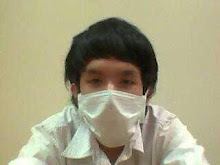http://news.bbc.co.uk/2/hi/business/8020610.stm
By Simon Atkinson Business reporter, BBC News
last updated at 15:00 GMT, Monday, 27 April 2009 16:00 UK
Many offices, factories and shops across Mexico opened on Monday morning - but it is going to be far from business as usual.
Workers said they had received few instructions from employers to stay at home.
However, some are remaining away from work because of fears they could contract the swine flu which, aside from the human cost, is already costing industry millions of pounds.
As the virus spreads and new cases emerge around the globe, it seems inevitable that the economic impact will be felt beyond its borders.
Global investors have already taken pre-emptive action - pinpointing a potential fall-out.
Shares in airlines and hotel firms have taken a hit, as shareholders bet the outbreak will lead to a fall in global travel.
Meanwhile, US soy and corn futures suffered their biggest one-day decline in more than two months on fears that a swine flu outbreak in North America was likely to slash global meat consumption and hit demand for grain to feed animals.
However, pharmaceutical companies - such as Tamiflu-maker Roche - have enjoyed a mild rally amid expectations that demand for anti-viral drugs will rise.
Tourist impact
Back in Mexico, bars, shopping centres, cinemas, and even churches have been closed over the weekend.
And if there was any doubt how seriously the threat is being taken, authorities in the football-mad nation have held top-flight games behind closed doors.
Mayor Marcelo Ebrard is planning meetings with business leaders in Mexico City, to determine if further measures are needed.
The outbreak comes at a time when the country's economy, like that of most of the rest of the world, is vulnerable.
Just last week, the International Monetary Fund (IMF) projected that Mexico's economy would shrink by almost 4% this year, as a result of the global financial crisis.
How the influenza spreads could determine whether it gets worse than this already gloomy forecast.
An EU official has warned against travel to virus-hit parts of the US and Mexico, and the US Center for Disease Control has issued precautions for those who do travel.
Meanwhile, several airlines flying to Mexico are allowing customers to postpone their journeys, while German travel group TUI, which operates tours within the country, is taking trips to the capital off its itinerary.
In a nation where foreign tourism is the third-largest source of outside money, the prospect of would-be visitors cancelling business trips and holidays is worrying.
Safety
Health and food groups have insisted that the outbreak is a human health issue rather than an animal one.
"Swine influenza cannot be transmitted by eating pork products. Eating properly handled and cooked pork and pork products is perfectly safe," the UK's Chief Veterinary Officer, Nigel Gibbens, said.
Some are choosing to avoid airports in Mexico
But Mexico's meat industry is already hurting.
China and Russia have banned imports of pork and pork products from Mexico and three US states that have reported cases of swine flu.
Indonesia, the country that was hardest hit by bird flu, said that it was following suit.
A band on meat imports from Mexico to the EU, which was already in place, will continue.
Preparation
In the UK, businesses are being urged to prepare and think ahead in case the swine flu outbreak becomes a pandemic.
Management need to protect employees and ensure they have prepared for large levels of staff absence, said Alex Hindson, head of enterprise risk management at Aon Global Risk Consulting.
"Media pressure is likely to make people think very carefully before travelling on busy public transport systems and organisations could find themselves without key staff for protracted periods, whether ill, looking after relatives or merely being cautious," Mr Hindson said. (Media have the big impact to the situatuion)
He also noted that as many firms were already under pressure from the financial crisis, they needed to win the support of customers and investors,
"Having a robust continuity plan in place could be the make or break for companies responding to both issues simultaneously and surviving intact," he said, adding these should tackle issues of absenteeism and the implications of working away from the office.









